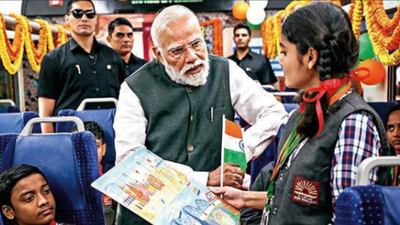Key Takeaways
- PM Modi links accessible justice delivery directly to ease of doing business and living
- Government has removed 40,000+ compliances and 1,500 archaic laws in reform push
- ₹7,000 crore sanctioned for judiciary’s technological modernization
- Judgments to be translated into 18 languages for better public understanding
Prime Minister Narendra Modi emphasized that accessible justice delivery is fundamental to improving both business environment and quality of life for citizens. Speaking at Legal Services Day, he stated that technology with pro-people focus can significantly enhance this process.
Legal Reforms and Business Environment
Over the past 11 years, the government has undertaken substantial legal reforms including:
- Removal of over 40,000 compliance requirements
- Elimination of 3,400 legal provisions
- Repeal of more than 1,500 archaic laws
“Ease of doing business and ease of living is possible only when ease of justice is ensured,” the Prime Minister asserted.
NALSA’s Role and Community Mediation
Modi acknowledged the National Legal Services Authority’s three-decade contribution in connecting common citizens to justice. He highlighted that NALSA has prevented and settled lakhs of disputes through mediation in recent years.
The PM described ‘community mediation’ as an ancient Indian practice that fosters harmony and reduces litigation burden on courts.
Technology as Democratic Force
“Technology can be disruptive. But with pro-people focus, it can be a democratic force,” Modi stated, citing UPI’s revolution in digital payments as an example.
He announced massive infrastructure development including optical fibre connectivity to villages and erection of one lakh mobile towers.
Vision for Developed India 2047
Legal professionals, judges and judicial officers must collaborate to create an advanced, accessible justice system aligned with goals. The government has sanctioned ₹7,000+ crore for judiciary’s technological upgrade.
Modi stressed that marginalized sections need awareness of their rights to access justice. He directed High Courts and district courts to follow Supreme Court’s initiative of translating judgments into 18 languages.
“The language of justice must be understood by the litigants. Only then will there be increased compliance and less litigation,” he emphasized.
Judicial Leadership Perspectives
CJI B R Gavai noted that NALSA provides hope to marginalized citizens for protection of their rights. “The system should not be reactive but proactive to prevent abuse of rights,” he stated.
CJI-designate Justice Surya Kant observed, “The true measure of a justice system is not how swiftly it decides complex cases, but how deeply it touches the lives of ordinary citizens.”
Echoing the PM’s technology focus, Justice Kant cautioned that while technology offers opportunities like online conciliations, it must be guided by local knowledge, linguistic accessibility and human empathy.




